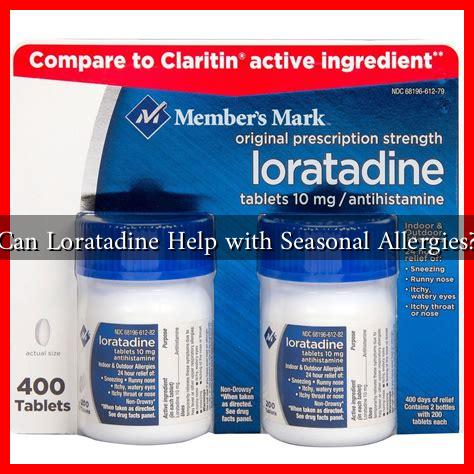-
Table of Contents
Can Loratadine Help with Seasonal Allergies?
Seasonal allergies, often referred to as hay fever or allergic rhinitis, affect millions of people worldwide. Symptoms can range from mild to severe, impacting daily activities and overall quality of life. One of the most commonly used medications for alleviating these symptoms is Loratadine. This article explores the effectiveness of Loratadine in managing seasonal allergies, its mechanism of action, and considerations for use.
Understanding Seasonal Allergies
Seasonal allergies are triggered by airborne allergens such as pollen from trees, grasses, and weeds. According to the American College of Allergy, Asthma, and Immunology (ACAAI), approximately 30% of adults and 40% of children in the United States suffer from allergic rhinitis. Common symptoms include:
- Runny or stuffy nose
- Itchy or watery eyes
- Sneezing
- Itchy throat or ears
- Fatigue
These symptoms can significantly disrupt daily life, making effective treatment essential for those affected.
What is Loratadine?
Loratadine is a second-generation antihistamine that is widely used to treat allergic symptoms. Unlike first-generation antihistamines, Loratadine is less likely to cause drowsiness, making it a popular choice for individuals who need to maintain their daily activities. It is available over-the-counter in various forms, including tablets, liquid, and dissolvable strips.
How Does Loratadine Work?
The primary mechanism of Loratadine involves blocking the action of histamine, a substance in the body that causes allergic symptoms. When allergens enter the body, histamine is released, leading to inflammation and the typical symptoms of allergies. By inhibiting histamine receptors, Loratadine helps to:
- Reduce nasal congestion
- Alleviate sneezing
- Minimize itching and irritation in the eyes and throat
This action makes Loratadine an effective option for managing seasonal allergies.
Clinical Evidence Supporting Loratadine
Numerous studies have demonstrated the efficacy of Loratadine in treating seasonal allergies. A review published in the journal *Allergy* found that Loratadine significantly reduced symptoms of allergic rhinitis compared to a placebo. In a randomized controlled trial involving over 1,000 participants, those taking Loratadine reported a 50% reduction in overall allergy symptoms within the first week of treatment.
Additionally, a study published in the *Journal of Allergy and Clinical Immunology* indicated that Loratadine effectively improved quality of life for patients suffering from seasonal allergies, allowing them to engage more fully in daily activities.
Considerations and Side Effects
While Loratadine is generally well-tolerated, some individuals may experience side effects, including:
- Headache
- Dry mouth
- Fatigue
- Gastrointestinal disturbances
It is essential for individuals with specific health conditions or those taking other medications to consult with a healthcare provider before starting Loratadine. Pregnant or breastfeeding women should also seek medical advice to ensure safety.
Conclusion
Loratadine is a highly effective option for managing seasonal allergies, providing relief from symptoms without the sedative effects commonly associated with first-generation antihistamines. With substantial clinical evidence supporting its use, Loratadine can significantly improve the quality of life for those affected by allergic rhinitis. However, as with any medication, it is crucial to consider individual health circumstances and consult with a healthcare professional for personalized advice.
For more information on seasonal allergies and treatment options, you can visit the American College of Allergy, Asthma, and Immunology.

